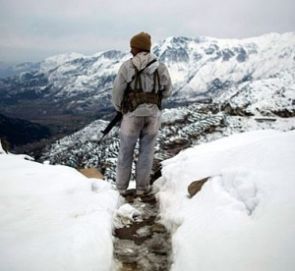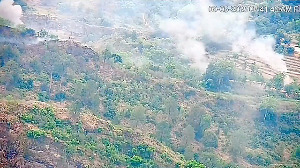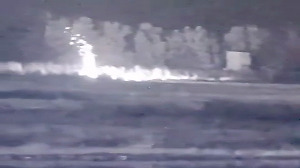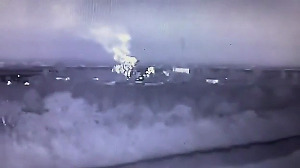 Continued uncertainty or confrontation in the Asia-Pacific is clearly in no one’s interest as it will affect major powers’ attempts to restructure their economies and revive growth. Conflict would roll back the gains to each of our countries of 40 years of stability and peace, says Shivshankar Menon.
Continued uncertainty or confrontation in the Asia-Pacific is clearly in no one’s interest as it will affect major powers’ attempts to restructure their economies and revive growth. Conflict would roll back the gains to each of our countries of 40 years of stability and peace, says Shivshankar Menon.
From an Indian point of view, located as we are at the intersection of West Asia and what is now called the Asia-Pacific, until recently Asia appeared to be heading in different directions, depending on whether one looked east or west. But today, in 2014, whichever way one looks, the factors of uncertainty have increased manifold, as has a sense of insecurity.
The reasons why this is so to our west are well known. The turmoil in West Asia has been well analysed, perhaps over-analysed; we know of the multiple transitions in Afghanistan this year, of the situation in Syria, Iraq, Libya, and so on and so forth.
But it is less obvious why there should be increased instability to our east in the Asia-Pacific, why East Asia is much less harmonious than it was until a few years ago.
One reason could be that the Asia-Pacific is a crowded geopolitical space, with the active involvement in its affairs of several established and of rising or re-emerging powers, some external and some intrinsic to the region. But it has been so since the beginning of the nineteenth century. So what has changed to increase insecurity and uncertainty? I can think of four immediate reasons:
- For one, it is not just that the Asia-Pacific is getting even more crowded as China and several other powers re-emerge on the geopolitical stage. It is the simultaneous emergence of several powers that has built pressure for a new equilibrium and balance. That new equilibrium has not emerged because the pace of change in the balance of power is so rapid.
- Secondly, rapid economic growth in the last few decades has given several states in the region the means to militarily strengthen themselves. East Asia has seen the most rapid accumulation of economic power in world history. It is now seeing the same in terms of military power. The Asia-Pacific as a whole is witnessing the greatest peacetime arms build-up in its history, possibly in world history.
- Technology and politics have eliminated distance and separation between powers. We now speak of the Asia-Pacific as a geopolitical unit, and not of East Asia, South East Asia and South Asia separately. What happens in the South China Sea or the East China Sea concerns and affects the entire region, if not the world. Information and weapons technologies have eliminated the separations that existed between powers in the region.
- We take for granted the removal of ideological restraints on the use of force or the threat of its use, even though it is a recent phenomenon. The absence of ideology has resulted in renewed internal debates and political arguments in several major Asia-Pacific countries. (You see this in China and Japan. India is no exception.) At the risk of oversimplifying, the debate is between liberal internationalists/reformers on the one hand, and ultra-nationalists/conservatives on the other. The reformers seek more international cooperation and are committed to international values and solutions. The conservatives seek to recover lost territory and status, (imagined or real), and seek a position of regional dominance, or hegemony, or in some cases as a superpower. The ultra-nationalists use a narrative of humiliation, pride, and resentment against limitations of capacity and reality to achieve their purposes. An essential part of this narrative is a threat inflation industry. And in many countries it is the conservatives with their emotional appeal who are the loudest in public discourse, not the cool reason and compromise of the reformers.
Each of these phenomena individually might not have been a cause for worry. Even taken together they could have been manageable. But they come at a time of doubt about the security architecture in the Asia-Pacific and just when a new balance of power is emerging.
For 40 years, since the US opening to China and the Vietnam War, the Asia-Pacific has known relative stability under a security order in which the US provided security guarantees for the status quo. Today the US itself is rebalancing back to the region and there is heightened uncertainty in the region.
What should we do?
Continued uncertainty or confrontation in the Asia-Pacific is clearly in no one’s interest as it will affect major powers’ attempts to restructure their economies and revive growth. Conflict would roll back the gains to each of our countries of 40 years of stability and peace.
What is the answer?
Clearly we need to act upon repeated statements by all the countries in the region and build an open, inclusive security architecture in the region, adding content to the concept and implementing it as soon as possible. We are only at the inception of this process with the ARF, the ASEAN Defence Ministers’ Plus dialogue, and the East Asia Summit.
It will, of course, be a security architecture with Asian characteristics, the political-military equivalent of the open interlinked economic order that has so benefitted the region, taking into account the primarily maritime nature of many regional security issues and disputes amenable to collective solutions.
In building the order we should concentrate on the security essentials that made the region’s phenomenal economic growth possible. The commons, on the high seas, in air space, and in cyber space should be safe and open to all lawful civilian users. That is why maritime security and freedom of navigation is so important and should be one of the first orders of business.
Openness about doctrines and defence, and increased military contacts, would also take some of the edge off uncertainty although confidence building can only hold the ring until the hard work of solving disputes and agreeing a rule based legal order is done.
All should work to ensure the peace and security that is so essential to Asia’s common future.
Shivshankar Menon is India’s National Security Advisor. He made this speech at the Asian Security Conference organised by the Institute for Defence Studies and Analyses.
Courtesy: IDSA











